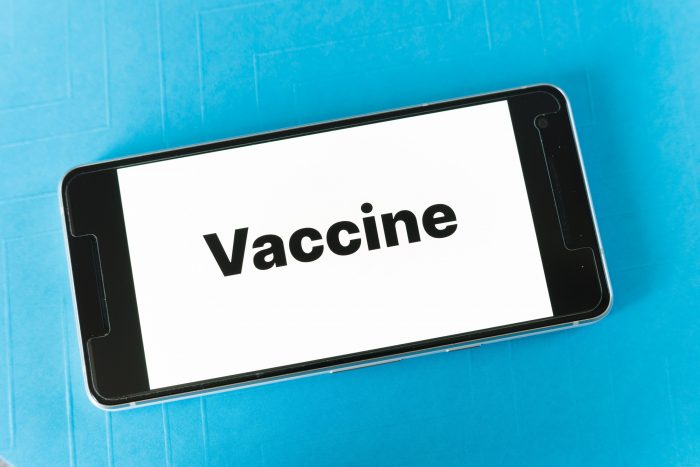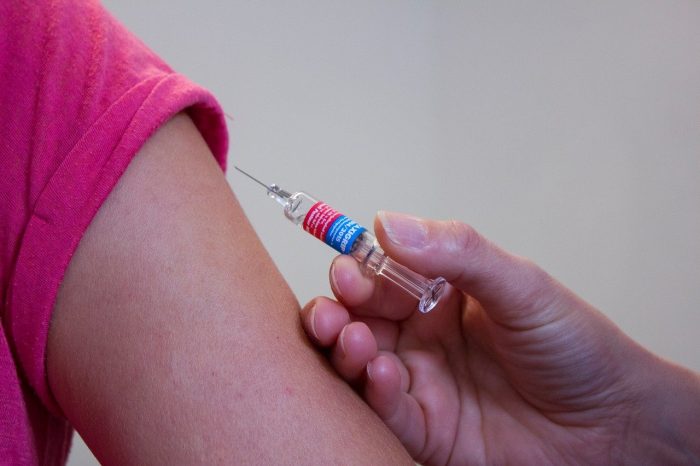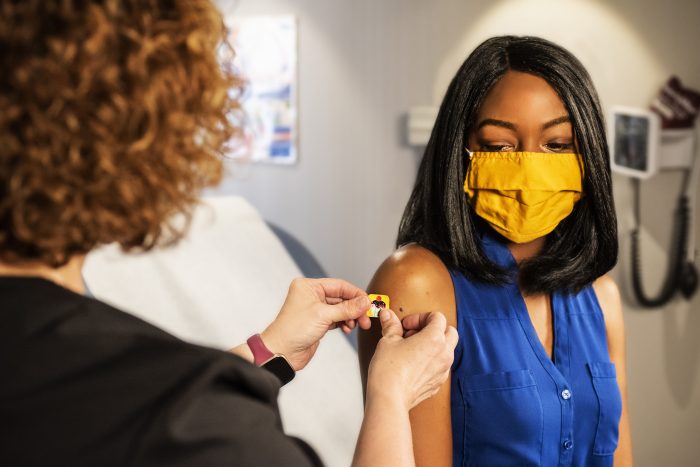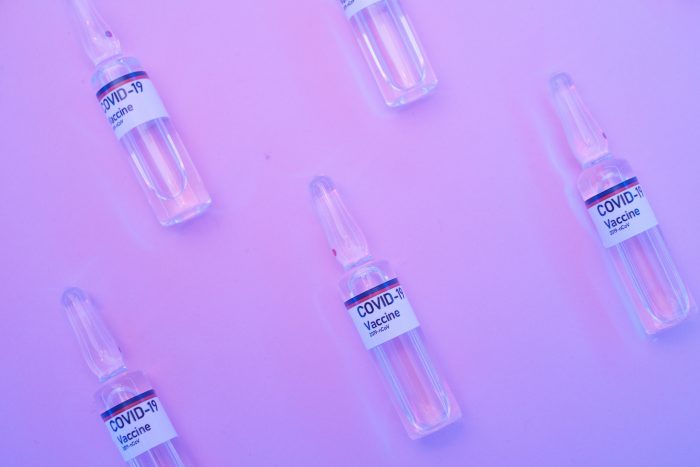Vaccine
PA DOH Notifies Citizens of Possible Measles Exposure
The Office of Developmental Programs has shared this important announcement from the Pennsylvania Department of Health (PA DOH) related to possible exposure to an individual positive for measles.
On October 11, the Pennsylvania DOH was notified by the New Jersey DOH that Pennsylvania residents could have been exposed to measles.
The New Jersey Health Department’s confirmed measles case is a resident of Monmouth County who presented with measles following recent international travel. The individual developed a rash and was subsequently confirmed to have measles via positive measles PCR results. He visited several healthcare facilities and public venues while infectious for measles.
DOH notes that anyone who visited the following New Jersey locations during the specified dates and times may have been exposed and should contact a health care provider immediately to discuss potential exposure and risk of developing the illness.
- Location: Livoti’s Old World Market, 200 Mounts Corner Drive, Freehold, NJ 07728;
Date & Time: September 30, 2024, between 5:30 pm – 8:30 pm - Location: El Rancho Mexican Restaurant, 28 W Main Street, Freehold, NJ 07728;
Date & Time: October 1, 2024, between 7:30 pm – 10:30 pm - Location: International Longshoreman Association Strike, Elizabeth Chassis Depot, 1510 S. Bay Avenue, Elizabeth, NJ 07201, and the area near the “Welcome to Elizabeth Terminal;”
Date & Time: October 1-3, 2024, all day - Location: Atlantic Health Immediate Care, 479 Route 520, Suite A103, Marlboro, NJ 07746;
Date & Time: October 6, 2024, between 3:00 pm – 6:00 pm - Location: Jersey Shore University Medical Center – Emergency Department, 1945 NJ-33, Neptune City, NJ 07753;
Date & Time: October 7, 2024, between 10:00 am – 5:00 pm
Potentially exposed individuals, if infected, could develop symptoms as late as October 29, 2024.
When to Suspect Measles
Consider measles as a diagnosis in anyone with a febrile rash illness lasting three days or more, a temperature of 101ºF (38.3ºC) or higher, and clinically compatible symptoms (cough, coryza, and/or conjunctivitis), particularly if the patient was potentially exposed to a case of measles or has recently traveled to an area with an on-going measles outbreak and are not fully vaccinated.
2024–25 COVID-19 Vaccines Authorized by FDA
The FDA has approved and authorized for emergency use updated COVID-19 vaccines (2024-2025 formula) that include a monovalent (single) component that corresponds to the omicron variant KP.2 strain of SARS-CoV-2. These vaccines were updated to provide better protection against COVID-19 caused by circulating variants. Two vaccines are available for use in the United States: 2024–2025 Moderna COVID-19 Vaccine and 2024–2025 Pfizer-BioNTech COVID-19 Vaccine. There is no preference for one vaccine over the other when more than one vaccine is recommended for an age group
Who should get the vaccine?
Everyone ages 6 months and older should get the 2024–2025 COVID-19 vaccine. This includes people who have received a COVID-19 vaccine before and people who have had COVID-19. The COVID-19 vaccine helps protect you from severe disease, hospitalization, and death.
It is especially important to get your 2024–2025 COVID-19 vaccine if you are:
- Ages 65 and older,
- At high risk for severe COVID-19
- Have never received a COVID-19 vaccine.
- Are living in a long-term care facility
- Are pregnant, breastfeeding, trying to get pregnant, or might become pregnant in the future.
- Want to lower your risk of getting Long COVID
People who recently had COVID-19:
- People who recently had COVID-19 may delay getting a COVID-19 vaccine for 3 months.
- The risk of getting COVID-19 is less likely in the weeks to months following a SARS-CoV-2 infection.
Certain factors could be reasons to get a vaccine sooner rather than later, such as:
- Personal risk of severe COVID-19
- Risk of COVID-19 in a family or household member or other close contact
- local levels of COVID-19 illness
Keep in mind:
- Vaccine protection decreases over time, so it is important to stay up to date with your COVID-19 vaccine.
- Getting a COVID-19 vaccine is a safer, more reliable way to build protection than getting sick with COVID-19.
Updated Recommendations Issued Regarding COVID-19 Vaccines

The Department of Health has updated “Recommendations Regarding the Monovalent and Bivalent mRNA COVID-19 Vaccines.” A summary of these updates include:
- The FDA announced on April 18, 2023, that it had rescinded the authorization for the monovalent Pfizer-BioNTech and monovalent Moderna COVID-19 vaccines and that the bivalent Pfizer-BioNTech and bivalent Moderna vaccines are now authorized for all doses for individuals 6 months and older.
- The FDA authorization for the Novavax vaccine is unchanged.
- The definition of up-to-date for COVID-19 vaccination was simplified, and now all individuals 6 years and older who have received a single dose of a bivalent COVID-19 vaccine, regardless of past history of receiving monovalent COVID-19 vaccine, are considered up-to-date.
- Children 6 months through 4 years of age who are unvaccinated may receive a 2-dose series of the Moderna bivalent or a 3-dose series of the Pfizer-BioNTech bivalent vaccine.
- Children who are 5 years old and are unvaccinated may receive 2 doses of the Moderna bivalent vaccine or 1 dose of the Pfizer-BioNTech bivalent vaccine.
- Children 6 months to 5 years of age who received one, two, or three doses of monovalent COVID-19 vaccine may receive bivalent vaccine, but the number of doses that they receive will depend upon the vaccine given and their vaccination history.
- Individuals 65 and older and those with certain immunocompromising conditions may choose to receive an additional dose of the bivalent Pfizer-BioNTech or bivalent Moderna vaccine.
- If you have any questions, please call PA DOH at 877-PA-HEALTH (877-724-3258) or your local health department.
You can view the entire health advisory here.
FDA Backs Second Omicron Booster for High-Risk Groups
Holiday Season Health & Safety Reminders
As the holiday season approaches, remember to protect yourself and others by staying up-to-date with your COVID-19 and flu vaccines. You may be eligible to receive your flu vaccine at the same time as a recommended COVID-19 vaccine. Your healthcare practitioner or pharmacist can help you decide if you should receive both vaccines at the same time.
Flu Vaccine
CDC recommends that everyone 6 months and older should get a flu vaccine every flu season, with rare exceptions. Vaccination is particularly important for people who are at higher risk of serious complications from influenza. A full listing of people at Higher Risk of Developing Flu-Related Complications is available.
COVID-19 Vaccine
CDC recommends that people ages 5 years and older receive one updated (bivalent) booster if it has been at least 2 months since their last COVID-19 vaccine dose, whether that was:
- Their final primary series dose; or
- An original (monovalent) booster.
People who have gotten more than one original (monovalent) booster are also recommended to get an updated (bivalent) booster.
Staying up-to-date with COVID-19 vaccination is important for maximum protection. You are up-to-date with your COVID-19 vaccines if you have completed a COVID-19 vaccine primary series and received the most recent booster dose recommended for you by CDC.
You are still up-to-date if you receive all COVID-19 vaccine doses recommended for you and then become ill with COVID-19. You do not need to be immediately revaccinated or receive an additional booster.
Updated (bivalent) boosters became available on:
- September 2, 2022, for people 12 years of age and older; and
- October 12, 2022, for people aged 5–11.
Your healthcare practitioner, including your pharmacist, can help you determine if you are up to date with your vaccines.
Additional Resources
Inside Aging December 2022 Newsletter Now Available
Flu and COVID-19 Vaccinations and Boosters — Holiday Guidance

ODP Announcement 22-118 reminds Office of Developmental Programs (ODP) providers of the expectation to support individuals to access all available and recommended vaccinations and promote health and safety by providing helpful reminders about holiday gatherings.
ODP expects that providers will ensure that all individuals supported have timely opportunities to remain up-to-date with COVID-19 vaccination as defined by the CDC and are educated on how to practice heathy habits. This announcement also shares resources available to support people in making safe decisions during the holiday season.
COVID-19 Vaccine and Boosters Update From ODP

ODP Announcement 22-105 provides the most recent update to recommendations from the Centers for Disease Control (CDC) about details for COVID-19 vaccine and boosters. Release of this announcement will obsolete “ODPANN 22-046: COVID-19 Vaccine Booster Reminder.”
This updated guidance includes information on newly available booster vaccines, which are referred to as bivalent or updated vaccines. The guidance also discusses the availability of a newer primary vaccine called the Novavax COVID-19 vaccine. The CDC has updated information regarding the vaccination schedule for individuals based on age and provides considerations based on additional factors. Full information is available at the CDC’s Interim Clinical Considerations for Use of COVID-19 Vaccines Currently Approved or Authorized in the United States.
CDC Advisers Give OK to Novavax COVID-19 Shot for Unvaccinated Adults












